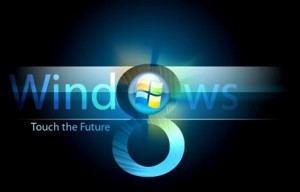 Microsoft is offering free tests of online backup for Windows Server 8 via its Azure cloud storage service, which could be a convenient way to protect data without having to spend a lot of time designing and cash outlay deploying private backup.
Microsoft is offering free tests of online backup for Windows Server 8 via its Azure cloud storage service, which could be a convenient way to protect data without having to spend a lot of time designing and cash outlay deploying private backup.
Microsoft Online Backup Service is open to beta testers willing to give the company feedback and to accept that they only get 10GB of space.
They can access the cloud storage by installing an Online Backup Agent on Windows Server 8 and downloading backed up data to any server they choose.
Uploaded data is compressed and encrypted, with only those data blocks that have changed being sent in order to reduce time and bandwidth. The software runs data integrity checks for corrupted data and any problems are fixed during the next upload, according to a Microsoft Windows Server blog post about the program.
The online backup server only supports Windows Server 8, the post says.
Wanted: Windows 8 developers
Microsoft has kicked off its nationwide series of one-day camps to train developers in how to create eye-popping Metro-style apps to populate its Windows Store.
The apps could also be crafted for deployment privately, but the point of the instruction is to encourage developers to incorporate key features of Windows 8 into their designs. For example the system search charm — an icon that accesses system controls — can be incorporated so that when users are within an application, they access the same charm in the same place to search within the application. The idea is to give users a sense of comfort about how things work in Windows 8, even if they switch from application to application.
Those attending the workshops should be familiar with HTML5/JavaScript, XAML/C# and C/C++. And they should bring their own laptops for one-on-one coaching with their particular application.
Problems with Windows 8 drivers?
Having trouble testing devices with Windows 8? There’s free software (at least before July) that can help out. PC Driver Headquarters Inc. has released a version of its Driver Detective software for all the Windows 8 versions that have been released so far. The driver software is itself a beta.
The idea behind it is making it simpler to test devices on Windows 8 PCs by reducing manual hunting down of the necessary drivers, the company says in a press release. Because the drivers are automatically provisioned, the time it takes to set up tests is reduced.
How many versions of Windows 8 will there be?
This is a topic of great interest, judging from the amount of speculation based on a dearth of hard information.
Many bloggers point back to www.winunleaked.tk as the source for belief that a version formerly called Windows 8 Pro will be known as Windows Pro Pack, although it’s not clear whether that is a name change or a different version.
This is based on screen shots of versions of Windows 8 that www.winunleaked.tk has gotten its hands on. The latest post says this about possible country-specific versions, particularly one for China that may be priced cheaply to discourage pirating. Here’s part of that post (it’s a Vietnam website, so the English is a little funky):
“I’ll show now, one called « CoreCountrySpecific », branded in Windows 8 as « Windows 8 for China », therefore Microsoft may work on a cheap version of Windows 8 to prevent future counterfeit copies.
“It can be installed only with Chinese ISO, with English one, you get a BSOD related to « bad MUI ».”
Why Windows 8 Consumer Preview touch can stink
Many people who have tried out Windows 8 on devices that support touchscreen have been disappointedby its balkiness and seeming insensitivity to finger swipes.
Microsoft addressed the issue this week in a blog post that states pretty clearly that Windows 8 touch has been written for machines built to Windows 8 specifications — something that most users aren’t likely to have kicking around.
Microsoft’s primary goal is making the actual commercial version of Windows 8 perform spectacularly when it’s released later this year, so bending over backward to have it perform as well on Windows 7 machines that are available now just didn’t make sense, they say in the blog.
Design goals for the touch capabilities includes responsiveness to the touch vocabulary without eating up too much screen real estate that is better occupied by the application user interface. The inevitable result was that the Windows 8 Consumer Preview may be disappointing to those who use the hardware that’s available to them.
Since Microsoft has a version of Windows 8 called Windows on ARM (WOA) that is fused to its hardware and has restrictions on what software is authorised to run on it, expectations are that they will support the optimal touch experience. If the company succeeds in this, it will be a pleasant surprise to those who are unsatisfied with it now.
Release Candidate when?
The Windows 8 Release Candidate — the next major step on the road to the final version — is due out by the end of May. Or perhaps in April. Or June.
The fact is there are so many rumors and so much speculation based on shreds of what is generously called evidence that it’s anybody’s guess when it will happen. Microsoft isn’t saying.
It’s so uncertain that perhaps it would make a good topic for the next office pool once March Madness is over.
Metro copycat?
If imitation is the sincerest form of flattery, Microsoft should be pretty pleased with the user interface that Samsung is showing with its Galaxy Tab 10.1, as noted by The Verge.
Although the tablet is based on Android and must be seen as a competitor to the as-yet-unavailable Windows 8 tablets, the interface could work to Microsoft’s advantage. If users get familiar with Metro and decide they like it once they get used to it, they may come looking for the Windows devices that inspired the look and feel.
Sore losers?
Microsoft’s Windows Phone Challenge grabbed a lot of attention for the wrong reason, at least from Microsoft’s perspective.
The challenge – to call up an app faster on a non-Windows smartphone than a Microsoft employee could on a Windows Phone – was accepted by a man in California, and it looked like he had won.
But the manager of the Microsoft Store in Santa Clara said he hadn’t won, and the reason wasn’t clear to the challenger, Sahas Katta, who blogged about the experience.
Other outlets picked up the story and within days, Microsoft had relented and given him the prize — a laptop and a Windows Phone. He says he’ll auction both and give the proceeds to charity.





